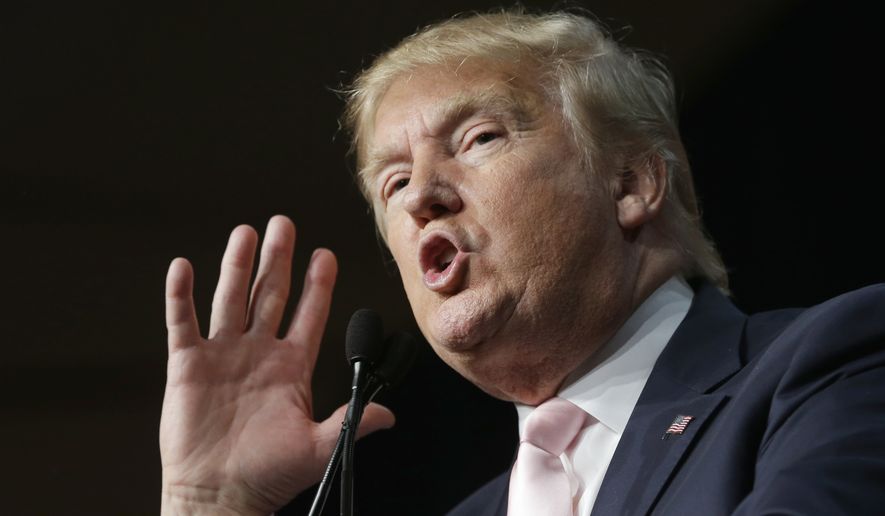BOULDER, Colorado — If Republican presidential candidates were seeking to exit their comfort zone, they could hardly have done better than to hold the third primary debate at the deeply blue University of Colorado in Boulder.
As expected, the campus was awash with progressive activism the day before Wednesday’s debate as left-wing groups from the Center for American Progress to People for the American Way mobilized for press events, roundtables and a #KochParty.
Even as leftists paraded effigies of candidates Jeb Bush and Marco Rubio through the campus, however, Colorado Republicans cheered the decision to hold the showcase event in hostile political territory.
“I know it’s no secret that Boulder County, and especially the city of Boulder, are liberal Democratic meccas,” said Denver-based Republican strategist Dick Wadhams. “At the same time, I think it shows how Republican candidates are not afraid to go anywhere, any time, to talk about their agendas.”
At a morning press conference, former Interior Secretary Ken Salazar took Republicans to task on two issues: their support for transferring control of federal lands to the states and their opposition to the Obama administration’s climate change agenda.
“We’re excited to host the presidential primary here in this state. It’s important for the state, it’s important for the nation,” said Mr. Salazar, a former Democratic senator from Colorado.
SEE ALSO: Nov. 10 GOP presidential debate in Milwaukee will include ‘undercard’ forum
“Unfortunately, there seems to be a Royal Gorge-size chasm between Colorado values and where some of the GOP candidates stand on energy and environmental issues,” Mr. Salazar said.
Meanwhile, students and liberal groups continued to push Republicans to let 1,000 students attend the debate at the Coors Event Center. The party initially gave 100 tickets for faculty and students, then provided 50 additional tickets earlier this week.
The debate, titled “Your Money, Your Vote: The Republican Presidential Debate,” is hosted and broadcast nationally by CNBC, the business cable channel.
ProgressNow Colorado’s Amy Runyon-Harris delivered a petition to the university last week calling for CNBC, the university and the Republican National Committee to open up the venue, which seats 11,000, to more students.
“The fact we’re even being shut out of the debate is a testament to why we need to be better at engaging youth voters,” said Boneth Ahaneku, president of internal affairs for CU student government, at a press conference.
Critics pointed out that organizers plan to use only 1,000 of those seats, although others say that nationally televised primary debates typically feature small live audiences composed mainly of campaign staff, families and other supporters.
University chancellor Philip P. DiStefano issued a statement noting that the campus will have “many related opportunities for our students, whether that’s attending a watch party, participating in a faculty-led discussion of the issues, volunteering with CNBC’s production or attending classroom presentations led by prominent journalists.”
Ryan Call, former chairman of the Colorado Republican Party, called the flap over tickets “a distraction that will be forgotten the day after tomorrow,” adding that, “you’re not going to have a meaningful conversation with people who are paid to criticize Republicans.”
At the same time, he said having the debate on campus would reap dividends for both Republicans and the community.
“I think it is a wonderful idea to go into what may be perceived as hostile territory with our message,” Mr. Call said, adding, “If the party is going to do well, we’re going to have to win Colorado.”
On Wednesday liberal groups are planning to hold a pro-immigration reform rally on campus during the second 10-candidate debate, while groups on both the left and right have scheduled forums immediately afterward.
Whether students will show up for the debate-related hoopla is another question. At Tuesday’s press conference hosted by the Center for American Progress, the handful of students in attendance were outnumbered by media.
Senior Connor Smith, who serves as chairman of the executive council of the American Enterprise Institute’s CU council, said the debate was “great for our school,” but also noted that there could be a reason for the spotty turnout at debate-related events that had nothing to do with politics.
“We’re in the middle of midterms right now,” said Mr. Smith.
• Valerie Richardson can be reached at vrichardson@washingtontimes.com.




Please read our comment policy before commenting.